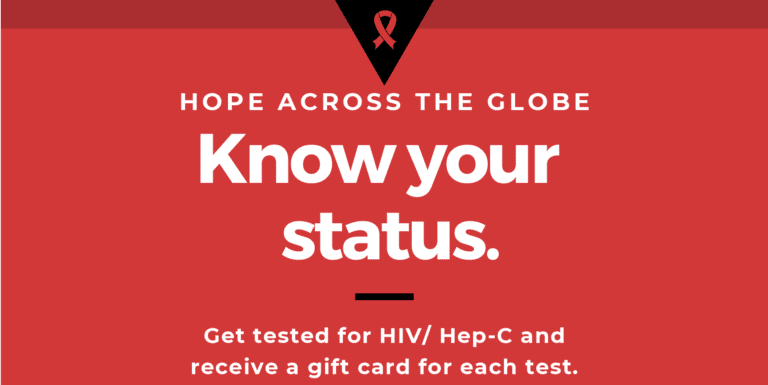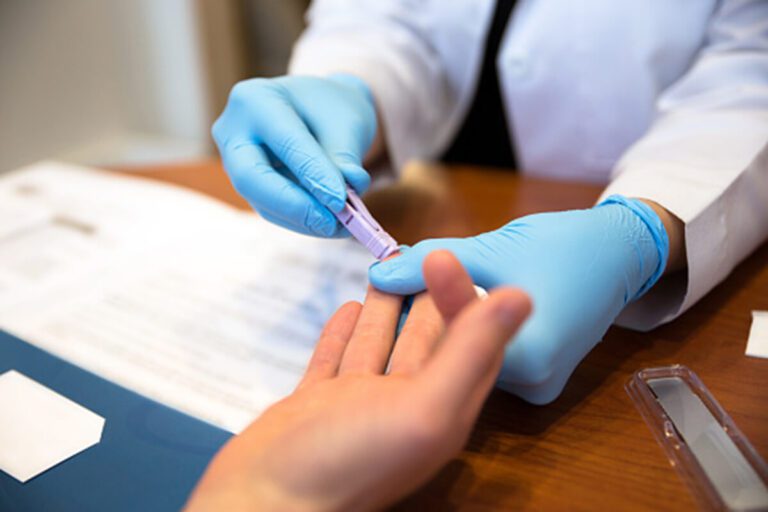How Couples Navigate Relationships When One Partner Has HIV
Finding out that one partner has HIV can bring uncertainty to a relationship. But with the right information, support, and medical care, couples can maintain strong, loving, and healthy partnerships. Understanding how to navigate daily life, intimacy, and emotional well-being is key to thriving together.
Understanding HIV and Its Impact on Relationships
HIV (human immunodeficiency virus) affects the immune system by attacking certain white blood cells. While it is a lifelong condition, medical advancements allow people with HIV to live long and healthy lives.
When one partner has HIV and the other does not, they are called a serodiscordant couple or mixed-status couple. This does not mean the relationship is doomed. Many couples continue to build happy, fulfilling lives together while managing the condition responsibly.
Open Communication and Emotional Support
Honest and open communication is the foundation of any healthy relationship. When discussing HIV, both partners should approach conversations with respect, understanding, and a willingness to listen.
1. Talking About HIV
- The partner with HIV should share their diagnosis in a comfortable and private setting.
- The HIV-negative partner should ask questions and seek clarity without judgment.
- Both partners should stay informed about HIV, treatment options, and preventive measures.
2. Managing Fears and Stigma
HIV carries a social stigma, but education can help both partners feel more confident. Learning about the virus together can reduce fear and misinformation.
Emotional support from family, friends, or counselors can also help. Many communities in Jacksonville, Florida have support groups for serodiscordant couples.
Safe Intimacy and Preventing Transmission
Couples can enjoy fulfilling physical relationships while protecting the HIV-negative partner from infection. Thanks to modern medicine, the risk of transmission can be significantly reduced.
1. Consistent Use of Medication
- Antiretroviral therapy (ART) helps people with HIV maintain an undetectable viral load, meaning the virus cannot be transmitted through sex.
- Studies confirm that undetectable = untransmittable (U=U). If the HIV-positive partner takes their medication consistently and remains undetectable, there is no risk of transmission.
2. Pre-Exposure Prophylaxis (PrEP)
The HIV-negative partner may consider PrEP, a daily pill that reduces the risk of getting HIV. It is highly effective when taken correctly.
3. Condoms and Other Protection Methods
Using condoms provides an extra layer of protection and prevents the spread of other sexually transmitted infections (STIs).
4. Regular Testing for Both Partners
Routine health screenings are important for both partners. HIV Testing Jacksonville clinics offer confidential testing services to ensure both partners stay informed about their health.
Pregnancy and Family Planning
Couples where one partner has HIV can still have children safely. With proper medical care, the risk of passing HIV to a child can be minimized.
1. Reducing Transmission During Conception
- If the HIV-positive partner has an undetectable viral load, they will not pass HIV to their partner during conception.
- Artificial insemination and sperm washing are other options to reduce transmission risk.
2. Preventing Transmission to the Baby
- Pregnant individuals with HIV can take ART to prevent transmission.
- HIV-positive mothers should consult doctors about safe feeding options.
The Role of Routine Healthcare
Regular check-ups help couples maintain good health. HIV Testing Jacksonville centers offer screenings, medications, and support services for mixed-status couples in Jacksonville, Florida.
1. Ongoing Treatment for the HIV-Positive Partner
- ART should be taken as prescribed to maintain an undetectable viral load.
- Doctors monitor overall health and adjust treatment plans when necessary.
2. Preventive Care for the HIV-Negative Partner
- Regular STI testing ensures early detection of infections.
- Vaccinations (like hepatitis B and HPV) offer additional protection.
Strengthening the Relationship
HIV does not define a relationship. Couples can grow stronger by focusing on love, trust, and shared goals.
1. Seeking Professional Counseling
Therapists or support groups can help partners process emotions and communicate effectively. Many healthcare centers in Jacksonville, Florida offer relationship counseling services.
2. Educating Friends and Family
Educating loved ones about HIV can create a strong support system. This helps reduce stigma and promotes understanding.
3. Building a Life Together
With open communication and proper healthcare, couples can thrive. Whether it’s traveling, starting a family, or supporting each other’s careers, HIV should not limit happiness.
FAQs
Can a Relationship Work if One Partner Has HIV?
Yes. With the right medical care and support, couples can maintain a healthy, happy relationship.
Is It Safe to Have Children When One Partner Has HIV?
Yes. Medical advancements help prevent transmission to partners and babies. Consult a doctor for safe conception options.
Where Can I Get Tested in Jacksonville?
Several clinics in Jacksonville, Florida offer confidential HIV Testing Jacksonville services for individuals and couples.
Does an HIV-Positive Partner Always Transmit the Virus?
No. If the HIV-positive partner takes ART and has an undetectable viral load, they cannot transmit the virus through sex.
Final Thoughts
Navigating a relationship when one partner has HIV takes communication, knowledge, and medical care. By taking the right steps, couples can protect their health, strengthen their bond, and live fulfilling lives together. If you need support, HIV Testing Jacksonville clinics can provide guidance and care. Love and commitment are stronger than any diagnosis, and with the right approach, couples can build a future full of possibility.






